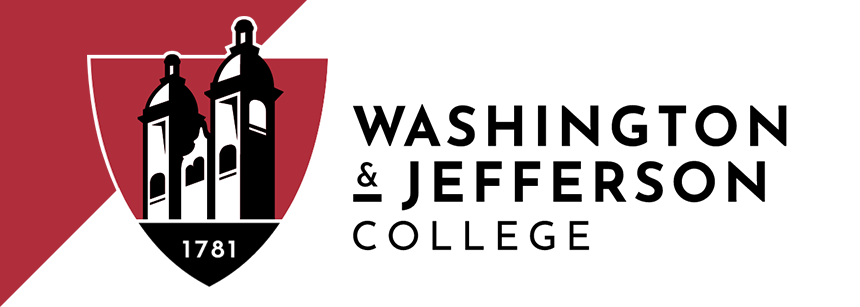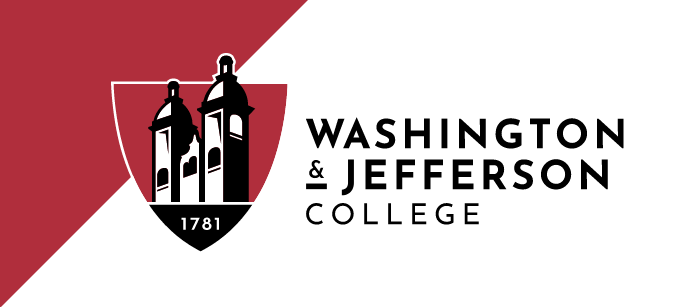Washington & Jefferson College’s fourth annual Symposium on Democracy, held Feb. 17, 2021, focused on the theme “Democracy in Times of Crisis: When Freedom and Security Collide.” In addition to keynote talks by noteworthy leaders and academic experts, the Symposium included numerous breakout sessions hosted by W&J’s own students and faculty members. More information about these sessions can be found in the 2021 Symposium on Democracy archives.
Forgetting Democracy? The Role of Remembrance and Sousveillance in Modern U.S. Politics
Presented by Mary Ryan, W&J Assistant Professor of Political Science and Public Policy Program Director, this session examines sousveillance, or a participant’s recording of an activity, as a civic engagement strategy in modern U.S. society. Ryan explained that sousveillance differs from surveillance in that while surveillance is organized, planned and strategic – an example is video cameras mounted in public places – sousveillance occurs when someone records their own participation in an activity on a personal device. Examples include recordings made at concerts or athletics events, but also more seriously, recordings of protest activity, arrests being made, or of police procedures.
By looking at this area of surveillance and technology, we can see what society chooses to remember and forget. This helps us better understand what our democracy fears, believes, and values but also prompts vital discussions of trust, consent, and agency which go to the heart of democratic citizenship.
I Didn’t Mean MY Rights: Why We Restrict Rights When We’re Scared
Should the government wiretap your phone in the interest of national security? What about your new neighbor’s phone? What about a suspected terrorist’s? These were the questions addressed by W&J Assistant Professor of Psychology Kevin Carriere during the breakout session he hosted. Carriere reviewed psychological research on why when we are scared, we are more willing to restrict the rights of others – and where we draw the line between who gets rights and who gets restrictions.
“We have this idea that we all support human rights and civil liberties – that they’re the core of who we are and what it means to be a democracy. Then, we’re faced with something threatening like terrorism, the unknown, or others, and when we have this idea or threat in our lives, we stop supporting human rights. This is a serious problem,” Carriere said. “Authoritarian leaders and dictators know this relationship exists, and they create these threats – fears, mistrust, subterfuge – in order to gain power and take advantage of us.”
Conflict and Resolution Studies Program Student Panels
W&J’s Conflict and Resolution Studies Program presented four student panels during the Symposium on Democracy, examining the topics: “Heightening Racial Discrimination Awareness in the Struggle to Achieve Equality”; “America’s Promise Unfulfilled: Why Racial Hatred Can No Longer Be Ignored”; “Steps to Resolve U.S. Repression and Divisiveness”; and “How to Make the U.S. Tolerant: End Muslim Hate Speech.”
During their studies, CRS students were challenged to identify areas of conflict within our society and provide possible solutions to those conflicts, specifically relating to racial inequity and discrimination. Student research suggested a variety of areas in which our society can improve and provide supports to people of color, and Nik Collins summarized it best during one of the morning sessions.
“Through integrative and inclusive workshops, we as people can come together—regardless of race, religion, sexual orientation—and see that we are just people,” Collins said.
Afternoon sessions focused on response to hate speech, and how to combat hate on multiple levels. The students showed how gaining a better understanding of other cultures is essential for social harmony.
“We are stronger together, and through both unity in humanity and spirit, we can be set back on the right track,” Colin Higinbotham said.
Full descriptions of these sessions are available in the 2021 Symposium on Democracy archives.
The Freedom and Security of Refugees During the COVID-19 Pandemic
As COVID-19 has shaken the world and exploited the flaws in many government systems, news coverages has neglected the dire conditions that many displaced people and refugees have accepted as their new reality; little if no access to pay, dangerous levels of overcrowding, and scarce access to healthcare.
Through a partnership with NaTakallam (a non-profit organization that empowers refugees to share their stories with audiences) and organized by H.J. Manzari, Ph.D., Kellin Cavanaugh, ABD, and Clara Sherwood ’22, this session featured guest speaker Pavel Corro. Pavel, who is originally from Valencia, Venezuela, is currently a refugee in Argentina.
“The desired outcome of Refugee Voices series is to increase our intercultural awareness and to teach us about the plight of refugees. Many of us have learned about world conflicts in our classes or the media, but we’ve never had the chance to speak to someone who has actually been affected by these events,” said Clara Sherwood ’22.
When Clara asked about his perspective on the political climate in the U.S. and protesting, Pavel said, “I feel that everyone [in America] expressing their point of view is blessed…the options you have to express yourselves in such way is something we [Venezuelans] wish we could do.”
Virtually No Child Left Behind: The Dismantling of Public Education
Presented by D. Ryan Bunting, Instructor in the W&J Department of Education, and Marissa Capuzzi-Schimizzi, Assistant Professor in the same department, this session focused on current issues surrounding public school education systems and the rights of students to receive free and appropriate education, as well as the ways in which both federal and local governments fund and direct K-12 curriculums and resources, standardized testing, and special education programming.
Bunting noted that the source of school districts’ funding is important, and so is what they do with the money.
“One of the challenges is that districts don’t always have the freedom to choose how to spend the funding received, and that the amount and type of funding can vary widely from school to school – even between schools in the same district,” Bunting said, a point that Capuzzi-Schimizzi reiterated in her comments.
Speakers discussed how the pandemic has caused a further divide in the way students receive education across the United States, the future impact this will have on students academically and emotionally, and who should have the power and responsibility to make these educational decisions.

